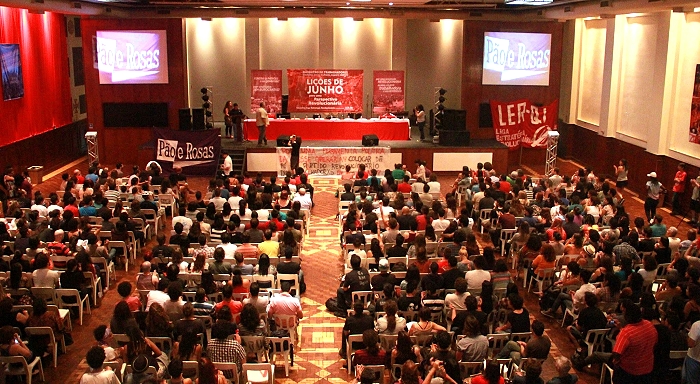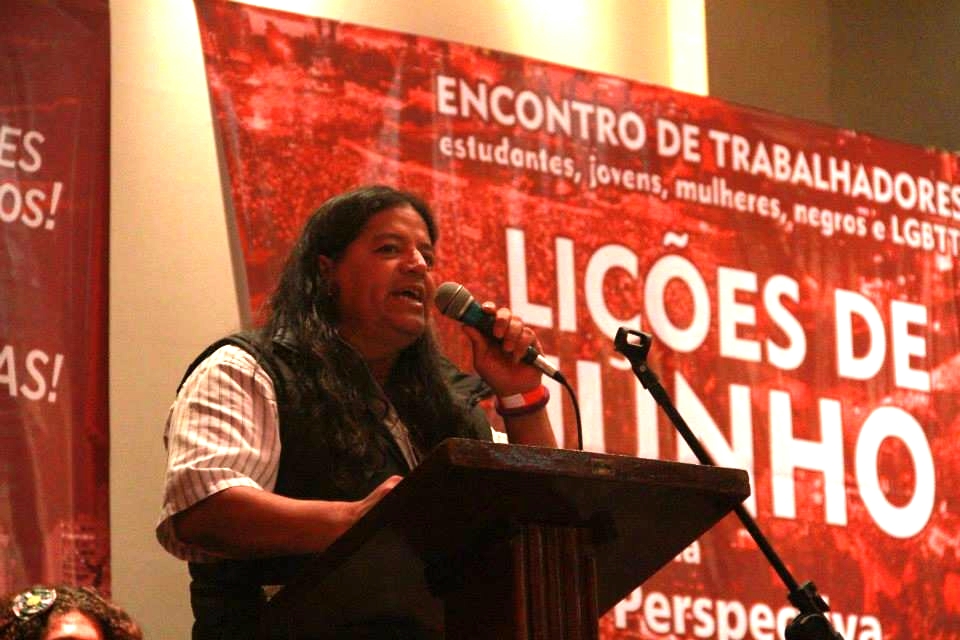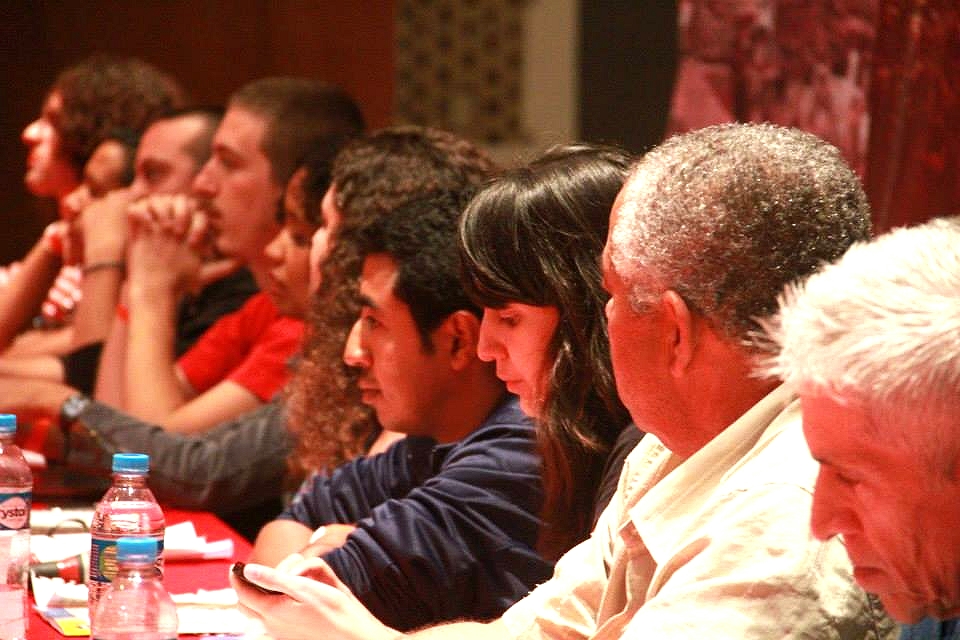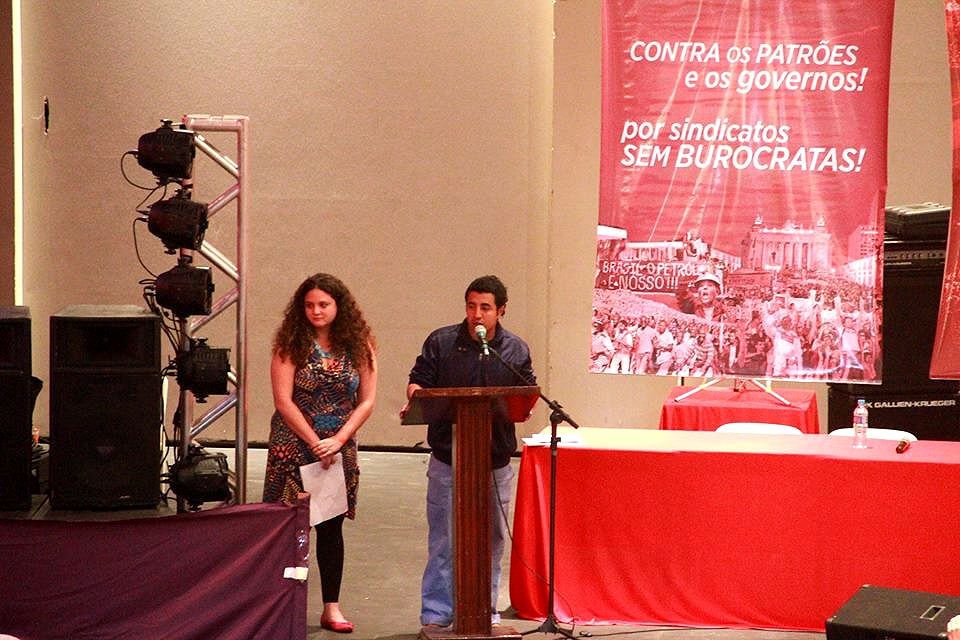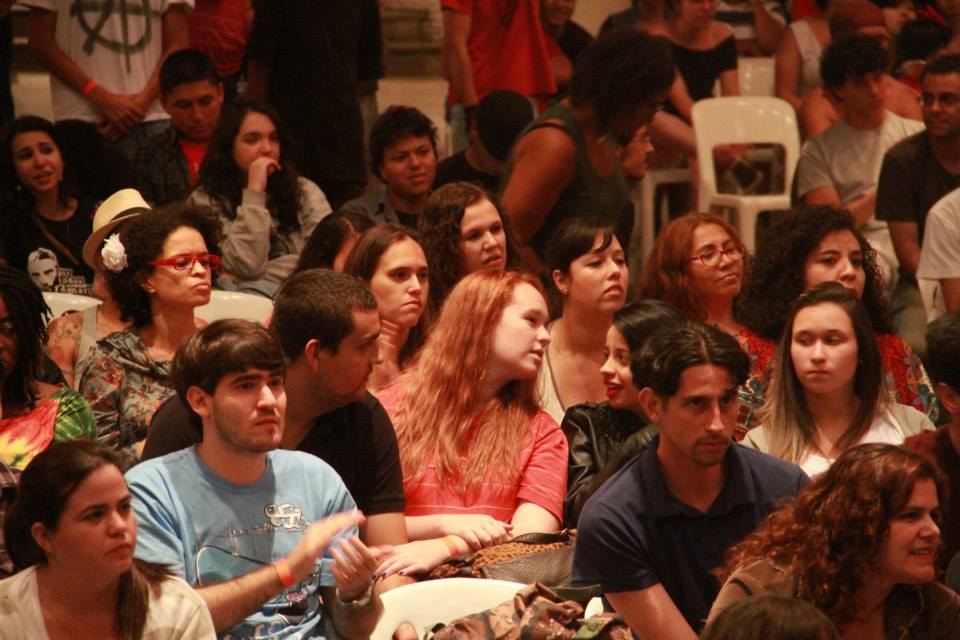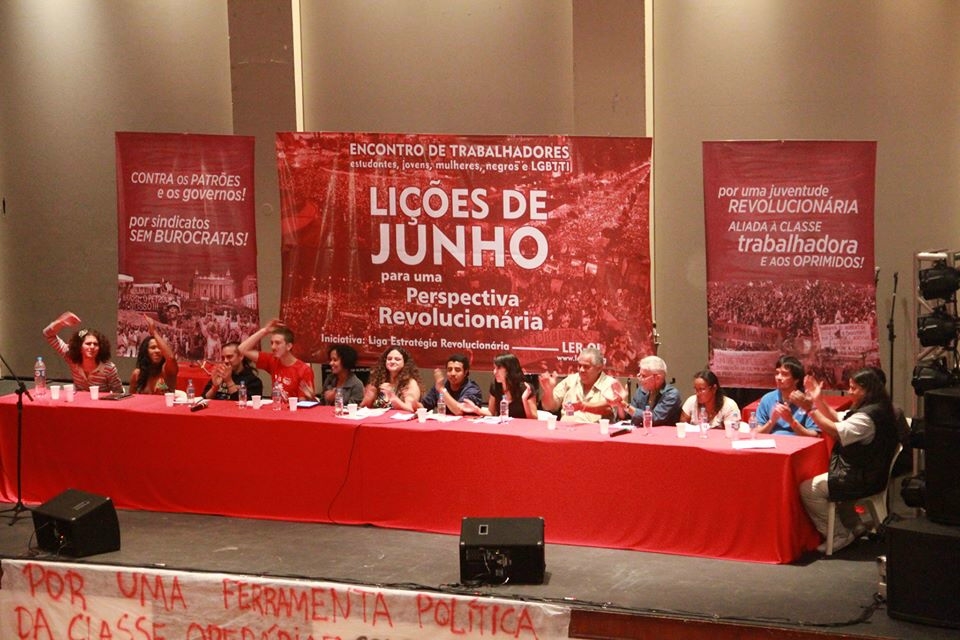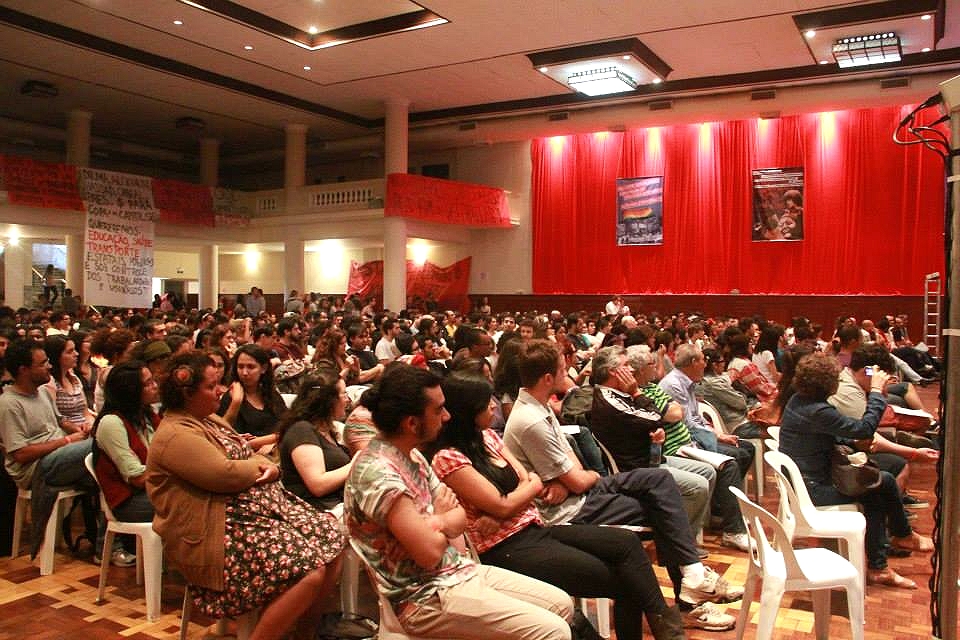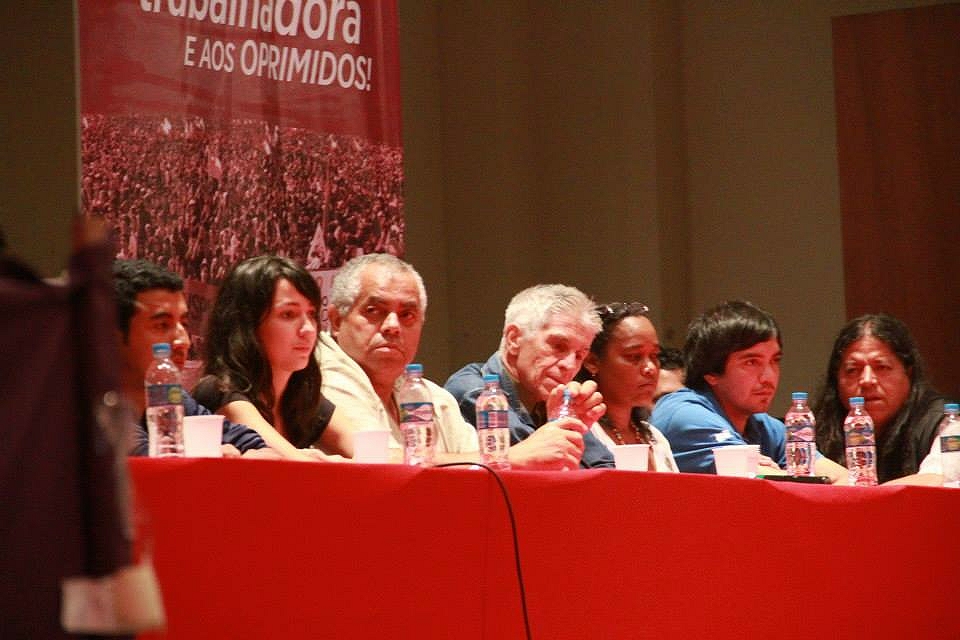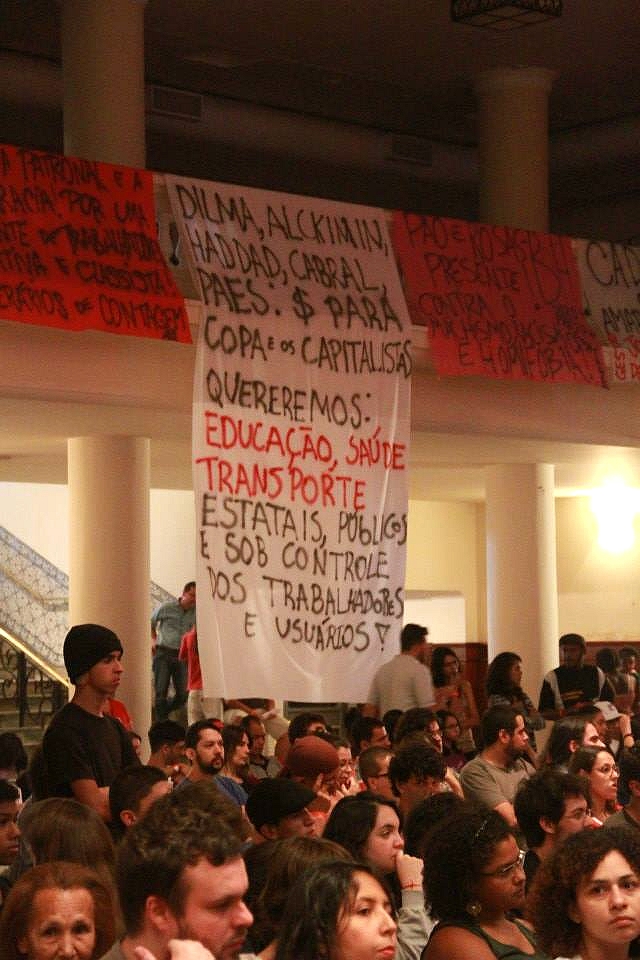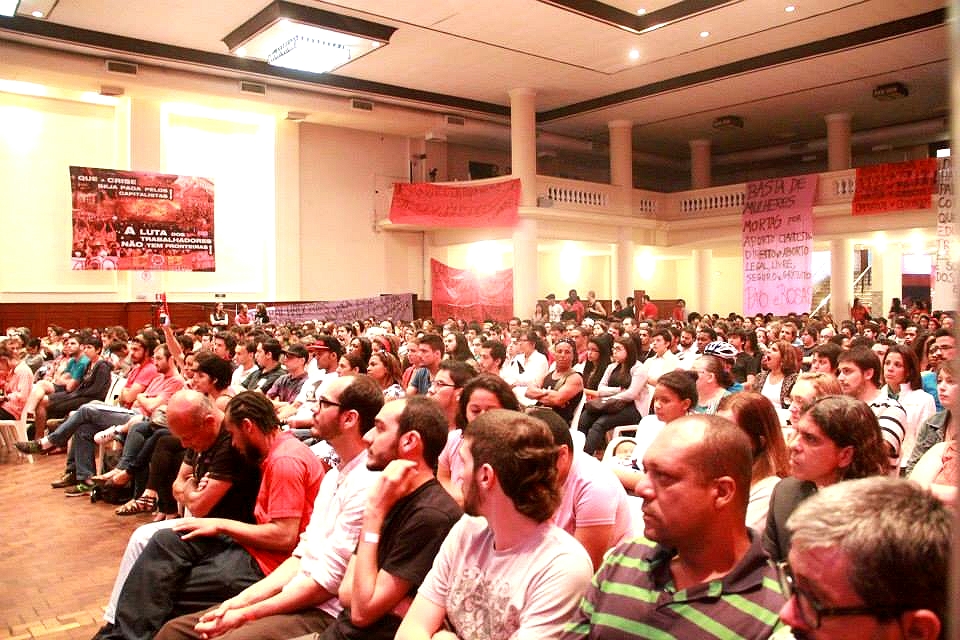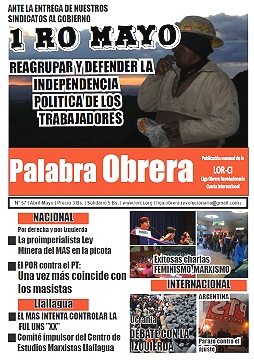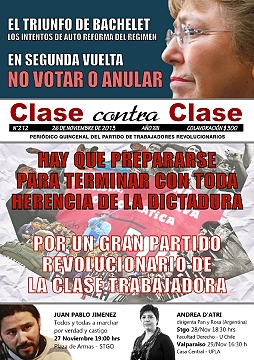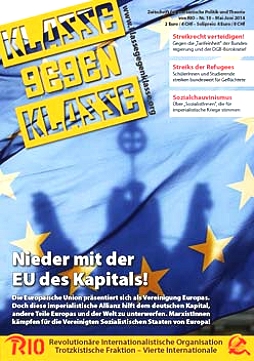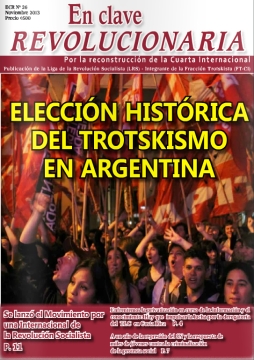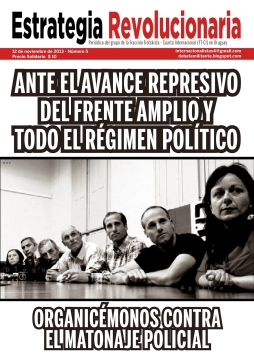Lessons of June for a revolutionary perspective
Brazil: Big meeting brings together more than 800 workers and young people from the whole country
12/11/2013
They were more than 800 people registered and several others present at the meeting of workers, students, women, men and women of color, and fighters for sexual freedom, held on Saturday, November 2 in the Casa de Portugal in São Paulo, answering the call to a national meeting to debate the "Lessons of June for a revolutionary perspective," organized by LER-QI.
The delegations came from the north of the country, with female and male comrades from Pará and Amapá, up to Rio Grande do Sul and Paraná, going through delegations of several dozen people, that came from Minas Gerais and Rio de Janeiro, in addition to a majority of militants and activists from São Paulo, including the metropolitan region and the interior of the state with an outstanding delegation from Campinas.
The representation of different groups of workers was very expressive. We were dozens of industrial workers, from metalworkers, food workers, shoemakers, among others. Dozens of permanent employees and outsourced workers from the University of São Paulo, dozens of permanent workers and outsourced workers from the São Paulo subway, in addition to oil workers from Rio de Janeiro, banking employees from São Paulo, and postal workers from São Paulo. Lots of teachers were also present, dozens of them having come from the state of São Paulo, from the capital, Campinas, Marilia, ABC and other cities, in addition to representatives of Minas Gerais, Rio Grande do Sul, and a particularly large delegation of teachers from Rio de Janeiro, that were coming from an historic strike.
Lots of young people were also present, with delegations from the most different groups. They were hundreds of university students from several states. From São Paulo, a large number came from the University of São Paulo (USP), from Campinas (Unicamp), from several campuses of the Unesp, in addition to big delegations from the FSA, UFABC, Unifesp, PUC, Mackenzie and several private universities. From other states, big delegations came from the UFMG, UFRJ, UERJ, IFRJ, UFRGS, in addition to the federal universities of Amapá and Pará, among others. There were dozens of secondary students from São Paulo, Campinas, ABC and from other states, in addition to students from FATEC and ETEC.
In the coming days we will be making available videos and texts of the speeches, that gave quite a broad panorama of the impact of the June days on the whole country, and of the lessons that the activists and militants have been drawing, beginning with the new stage that they opened for the class struggle in Brazil. In this brief note, we will highlight some of the decisive points of the meeting.
At the opening, the various guests at the meeting were greeted, like comrade Jorge Luiz Souto Maior, a Professor of the Law School of Largo São Francisco (USP) and a Labor Court Judge, a renowned ally of the struggles of the workers that are revolting against the casualization of work and life. Comrade Heloísa Greco, representing the Helena Greco Institute of Human Rights and Citizenship, of Minas Gerais, and its defense of human rights in the framework of the class struggle, also spoke. Comrade Leticia Pinho also spoke, greeting the meeting in the name of the leadership of the National Executive of the Movement of Women in Struggle. Comrade Messias, from the bank clerks’ oppositional group and a militant of the social movements of the Osasco region, comrade Camila Galetti, from the Maria Lacerda Collective of Maringá, Professor Gonçalo Rojas, from the University of Campina Grande of Paraíba and the teacher Luis César, from the municipal network of Rio de Janeiro, who also gave a report about the militant strike of the teachers and the politics of the leaderships, also greeted the meeting, among others.
The meeting was begun by Marcelo Pablito, a leader of the Union of Workers of the University of São Paulo (SINTUSP) and a workers’ leader of LER-QI, who greeted the various delegations, emphasizing that the very composition of the meeting was already a reflection of the changes that had occurred in the country since June, of how the new bands of workers, women and young people were waking up to the struggle, and, at the same time, were opening their eyes and their ears to revolutionary ideas and socialist causes.
Comrade Isabelle, an oil worker from Rio de Janeiro, told about her experience in the strike that confronted the privatization of oil and the handover that Dilma made, of the Libra oil field to the big imperialist monopolies, in a struggle that combined the recovery of historic methods, like the militant picket lines and self-organization in the rank and file assemblies, with the confrontations with the police in the streets, and the solidarity between the workers on the payroll and the outsourced workers. Isabelle moved the plenary session in telling how, in the heat of he struggle and of the debates that were begun, day after day, she became very excited by revolution and by Marxist ideas. We had a big round of workers’ speeches that showed, from the inside, many of the main struggles that the workers have led in the country since June, like the recent strikes of teachers in Rio de Janeiro and of bank clerks in São Paulo and throughout Brazil, and the political battles among the subway workers and teachers of São Paulo, among others. Comrades from different generations talked about the need to confront, not only the bosses and the governments, but the union bureaucracy, that is their arm inside the class organizations, and we had important speeches relating the reflections of the new movement after June, within the industrial structures where the bosses’ dictatorship imposes the necessity of patient, clandestine work. Then it was the turn of comrade Claudionor Brandão, a leader of SINTUSP, fired for political reasons by the Serra administration, who summarized the challenges posed for all those groups that had been forged as a new frontline of the working class, by calling on all the workers present and all the comrades who are building joint groups with us in the different sectors, as well as the female comrades of Bread and Roses and comrades of the Youth to the Streets, to join in the challenge of constructing a big national workers’ tendency, that will unify all our battles, by seeking to act from the CSP-Conlutas, for a militant, class-conscious and anti-bureaucratic center, to rise to the level of the challenges of reality.
Brandão recalled how, 13 years ago, they were only 7 comrades that, after the expulsion from the PSTU, for intransigently defending class independence and proletarian internationalism, rushed to construct a new revolutionary organization in Brazil, as part of the struggle for the reconstruction of a revolutionary International, the Fourth International. He recalled that then "friends called us dreamers, and adversaries called us crazy." And he stated that if it was possible, in a stage of apathy, to build, from 7 militants, a League capable of organizing a meeting of this magnitude, then with the collaboration of all those hundreds of female and male comrades present there, it would be possible, surely, to reach thousands and build a new, class conscious and revolutionary alternative for the working class, "not in 13 years, but in 13 months."
The women comrades of Bread and Roses, that participated by the hundreds in the meeting and transmitted the militant spirit of their excitement to the entire plenary session, were represented at the table by comrade Rita Frau, who is also a teacher of the state network in Campinas, and by comrade Silvana Ramos, the frontline of the struggle of the outsourced women workers. We also had speeches from comrades present in various student struggles throughout Brazil, especially the students who played a prominent role in the struggles under way or recently concluded, in the three state universities of São Paulo, as well as secondary school comrades that have been contributing to a big process of reorganization of free unions. Among the international guests, comrade Ruben Matu, a shop steward from the Lear factory in Argentina, spoke, putting the process of rank and file trade unionism in the country into words, with his emblematic examples in Zanon, in the Buenos Aires subway and in the large concentrations of the Argentinian food industry; and comrade Zonyko, a revolutionary militant and renowned Chilean rapper, spoke, relating the lessons of the big struggles of the young people for free education in Chile from 2011, of the increasing tendencies towards convergence with the working class, and of the process of political maturing of those new "young people without fear," as they are rightly known in Chile.
Pablito spoke again, engaging in a conversation with all the speeches, from which was clearly deduced a series of political campaigns, like the struggle against police repression and for punishment of the murderers of Amarildo and of all those killed by the police in recent months. A campaign taking up again the struggles of June, but by going further than the immediate slogans and fighting for nationalization of all the public services, under workers’ control and without compensation, on the basis of non-payment of the foreign debt and of progressive taxation of the businesses and capitalists. Also, the struggle against racism and against the oppression of women will unify all the groups present in the joint interventions on November 20, called a day of "black awareness," and November 25, a day of struggle against violence towards women. A campaign for punishing all the torturers, civilian and military, as well as unconditional support for all the struggles of workers and students under way.
Finally, in the closing block of the meeting, comrade Oscar Coria, a workers’ leader of the PTS of Argentina, a worker fired from the multinational Kraft and a candidate in the recent elections, as part of the Front of the Left and of the Workers (FIT), told how the FIT got three national Deputies and eight provincial Deputies, having more than 1,200,000 votes, without having to take down its program or having the money that the big businesses give the bourgeois candidates, nor with the machine that the government offers its own candidates. Oscar explained that that was possible because the FIT relied, not on an electoralist strategy of doing everything to win votes, but on in-depth and patient work in the workers’ movement, that roused thousands and thousands of workers, who had had an experience of years of struggle in the factories and on the streets against the employers and the union bureaucracy, and now they have understood the need to raise that battle to the political level, by backing the candidates of the FIT, that managed to have more than 50% of the votes in some of the main workers’ structures where the PTS has been developing its militant activity every day.
Then comrade Gilson Dantas, editor of the review Against the Current, a veteran Trotskyist since the end of the 1960’s, a political prisoner of the military dictatorship and a militant of LER-QI, talked about how the new generations that are going to lead the coming workers’ and popular rise, of which the month of June was only a small foretaste, will have the opportunity to draw lessons from the errors of the Brazilian left in the previous rises, and that that lesson can be summarized in the need to put the class struggle into practice with an effectively revolutionary strategy, that is, a strategy of soviets, in the sense of the self-organization of the workers and the oppressed, beginning with the factories, structures and places of work, and construction beginning from there of the organizations of class power, the opposite of the failed strategies of the left, that always favored the superstructural apparatuses, whether the unions or the bourgeois elections.
In closing the meeting, in the name of the national leadership of the LER-QI, comrade Diana Asunção, also a leader of the SINTUSP and persecuted because of the struggle in defense of the outsourced workers, spoke about the power represented by those hundreds of female and male comrades united in a great national tendency of workers that can take our voices and our examples of struggle further, but she called everyone to another level of reflection, that is imposed by reality itself. Diana took up again the historical dimension of the worldwide capitalist crisis, and how the most profound revolutionary processes caused by it, as we now see in Egypt, confirm once more the pressing need for a revolutionary party to take the struggle against capitalism to the end. She reminded us that we cannot measure our challenges by beginning with the forces that we have now, and that, facing the enormous magnitude of the Brazilian proletariat, the task of building a strong revolutionary party capable of uniting all the struggles and leading the working class and all the exploited and oppressed masses to the seizure of power, becomes still more exciting. To those present, she presented the proposal of building a Movement for the International of the Socialist Revolution, the Fourth International, and she ended by taking up again the confidence of the great Russian revolutionary Leon Trotsky, in the communist future of humanity, a society free from all violence and oppression, where the new generations will be able to enjoy life fully.
An opinion of Oscar Coria
A giant has begun to wake up. The days of June were moving, with the pictures of the mobilizations against the increase in transportation, showing thousands of young people seizing the streets against the government, as the beginning of a process of struggles that are being continued, like that of the oil workers and teachers, thus joining the millions of young people and workers in the world that are rising up against the capitalists.
I was invited to participate in this great meeting, together with Ruben Matu, a shop steward from Lear. The LER-QI, taking note of the profound nature of the change in the situation, organized a big national meeting, calling young people, workers, those with job insecurity, people of color, and LGTB, to discuss and draw the lessons of "June"; not only the quantity showed the profound nature of the days of June; more than half of the participants were women, many people of color and LGTB, that are from the most exploited and oppressed groups, that were not coming only in order to listen; the majority of the speeches were from women, who received applause with their speeches, like the comrade from the oil industry, who told how, in the midst of the struggle, she was falling in love with Marxism and revolution. Comrade Brandão said that if 8 militants, 13 years ago, were setting up an organization that now brings together 800, these 800 can set up a trade union political movement, not in 13 years, but in 13 months. Those who attended the meeting responded to the invitation in search of a political expression of the process that has them as its main figures. More than five hours of speeches to a packed hall shows that the meeting was a big step forward and that it is possible to build a trade union political tendency that will provide the coming struggles with class conscious leadership, on the way to building a revolutionary party, as part of an International for the Socialist Revolution, the Fourth International.
